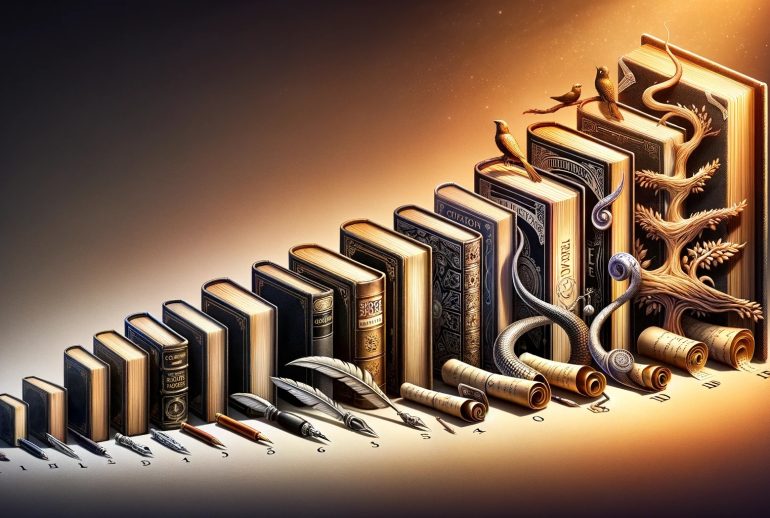Storytelling is a timeless art that has captivated audiences for centuries. From the humble short story to the grand epic saga, authors have been crafting narratives that transport readers to different worlds, evoke emotions, and provoke thoughts. Experienced authors possess a unique skill set that allows them to adapt their storytelling prowess to suit various formats, from concise short stories to sprawling epic series. In this article, we will delve into the world of storytelling and explore how adept authors navigate the challenges and opportunities each format presents to craft engaging storylines that resonate with their readers.
Short Stories: Crafting in Compact Spaces
Short stories are concise narratives, typically ranging from a few hundred to a few thousand words. Authors who excel in this format must master the art of brevity and precision, focusing on economy of words while delivering a powerful impact. The key challenge lies in creating a complete and emotionally resonant storyline within the constraints of limited space.
Characterization: In short stories, character development must be swift yet profound. Authors need to introduce complex characters quickly and make readers care about their fates in a short span. This requires a keen understanding of psychology and human nature.
Plot Structure: The plot in a short story must be tight and purposeful. Authors must make every scene count, eliminating unnecessary subplots or details. The concise nature of short stories demands a clear and compelling central conflict.
Resolution: Concluding a short story effectively is a delicate task. Authors often employ open endings or subtle twists to leave a lasting impression on readers without spelling everything out.
Symbolism and Subtext: Short stories often rely on symbolism and subtext to convey deeper meanings and themes. A skilled author knows how to weave these elements into the narrative without overwhelming the reader.
Novels: Expanding Horizons
Novels provide authors with a more expansive canvas to work with, offering the opportunity to develop intricate plotlines, multi-dimensional characters, and immersive world-building. The challenge here lies in maintaining reader engagement over hundreds of pages.
Pacing: Novels require careful pacing to sustain reader interest throughout the extended narrative. Authors must strike a balance between action, introspection, and character development.
Subplots: Novels allow for the inclusion of subplots that can enrich the main storyline and provide depth to the narrative. Managing multiple storylines while keeping them relevant can be a complex task.
World-Building: In epic novels, world-building becomes a critical aspect. Authors must create believable and immersive settings, complete with their own histories, cultures, and rules.
Character Arcs: Characters in novels have the space to undergo significant development and transformation. Authors can explore complex character arcs, from personal growth to moral dilemmas.
Epic Sagas: The Mastery of Long-Form Storytelling
Epic sagas, whether in the form of multi-volume book series or sprawling television shows, present the ultimate challenge for storytellers. Here, authors must sustain engagement over a vast expanse of narrative, often spanning several years.
Serialization: In epic sagas, the story is typically serialized, with each installment building on the previous ones. Authors must maintain continuity and keep readers or viewers invested over the long haul.
Multiple Storylines: Epic sagas often feature a multitude of characters and subplots, requiring meticulous planning to ensure that everything ties together cohesively.
Themes and Symbolism: With the extended format, authors have the opportunity to explore profound themes and symbolism in greater depth, creating a layered and thought-provoking narrative.
Evolution of the Story: Authors of sagas must be flexible and adapt to the evolving needs of the narrative and the expectations of the audience. This can be a daunting task over extended periods.
Conclusion
Experienced authors possess the remarkable ability to adapt their storytelling skills to various formats, from the concise world of short stories to the sprawling landscapes of epic sagas. Each format presents unique challenges and opportunities, pushing authors to refine their craft and tailor their narratives to captivate their audiences. Regardless of the format chosen, the mark of a truly skilled author is the ability to create engaging storylines that resonate with readers and endure the test of time, making storytelling an art that continues to evolve and enchant.



